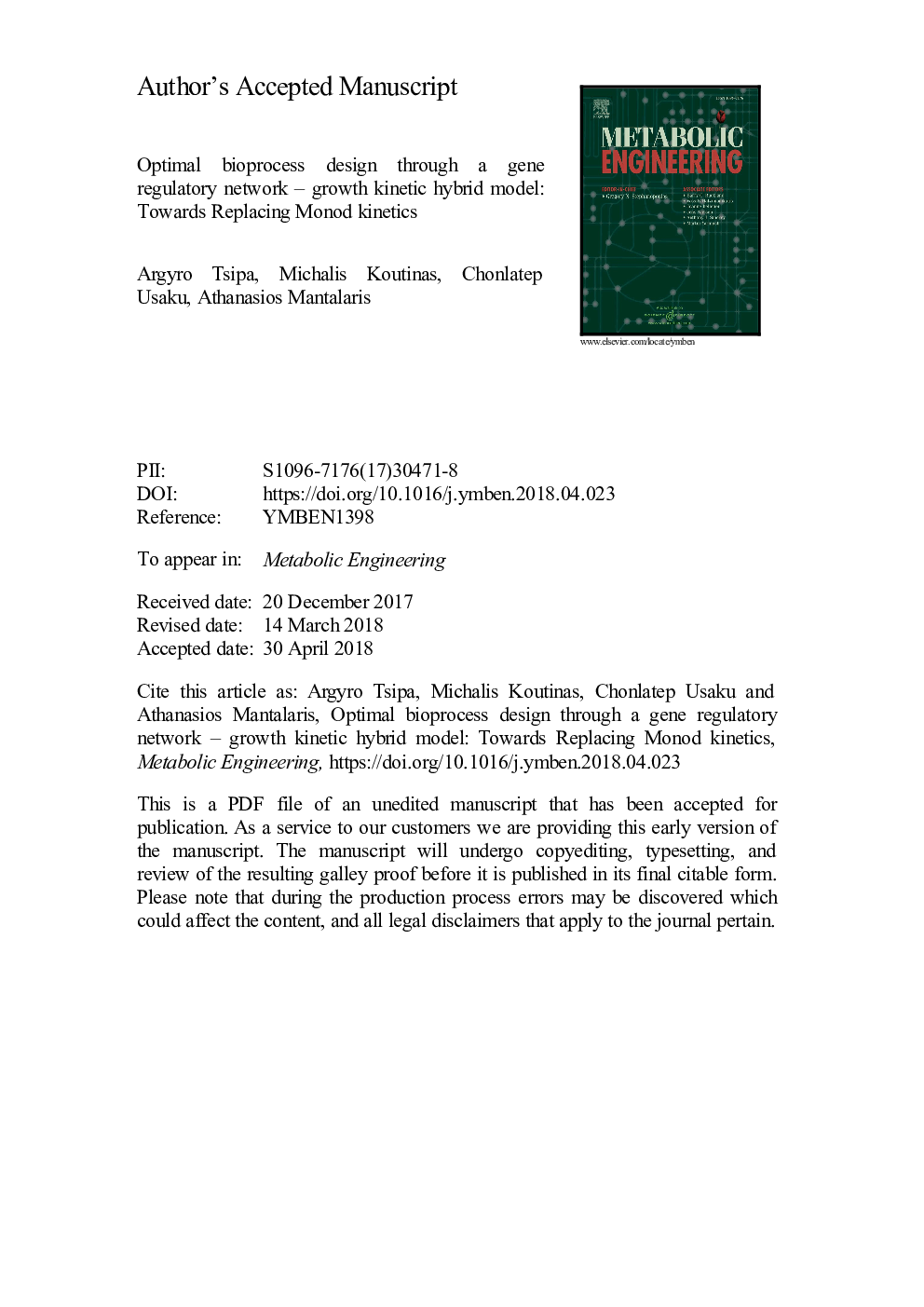| کد مقاله | کد نشریه | سال انتشار | مقاله انگلیسی | نسخه تمام متن |
|---|---|---|---|---|
| 6494043 | 1418331 | 2018 | 31 صفحه PDF | دانلود رایگان |
عنوان انگلیسی مقاله ISI
Optimal bioprocess design through a gene regulatory network - Growth kinetic hybrid model: Towards replacing Monod kinetics
ترجمه فارسی عنوان
طراحی بیو پروسس بهینه از طریق یک شبکه نظارتی ژنی - مدل ترکیبی رشد جنبشی: در جهت جایگزینی سینتیک مونود
دانلود مقاله + سفارش ترجمه
دانلود مقاله ISI انگلیسی
رایگان برای ایرانیان
کلمات کلیدی
موضوعات مرتبط
مهندسی و علوم پایه
مهندسی شیمی
بیو مهندسی (مهندسی زیستی)
چکیده انگلیسی
Currently, design and optimisation of biotechnological bioprocesses is performed either through exhaustive experimentation and/or with the use of empirical, unstructured growth kinetics models. Whereas, elaborate systems biology approaches have been recently explored, mixed-substrate utilisation is predominantly ignored despite its significance in enhancing bioprocess performance. Herein, bioprocess optimisation for an industrially-relevant bioremediation process involving a mixture of highly toxic substrates, m-xylene and toluene, was achieved through application of a novel experimental-modelling gene regulatory network - growth kinetic (GRN-GK) hybrid framework. The GRN model described the TOL and ortho-cleavage pathways in Pseudomonas putida mt-2 and captured the transcriptional kinetics expression patterns of the promoters. The GRN model informed the formulation of the growth kinetics model replacing the empirical and unstructured Monod kinetics. The GRN-GK framework's predictive capability and potential as a systematic optimal bioprocess design tool, was demonstrated by effectively predicting bioprocess performance, which was in agreement with experimental values, when compared to four commonly used models that deviated significantly from the experimental values. Significantly, a fed-batch biodegradation process was designed and optimised through the model-based control of TOL Pr promoter expression resulting in 61% and 60% enhanced pollutant removal and biomass formation, respectively, compared to the batch process. This provides strong evidence of model-based bioprocess optimisation at the gene level, rendering the GRN-GK framework as a novel and applicable approach to optimal bioprocess design. Finally, model analysis using global sensitivity analysis (GSA) suggests an alternative, systematic approach for model-driven strain modification for synthetic biology and metabolic engineering applications.
ناشر
Database: Elsevier - ScienceDirect (ساینس دایرکت)
Journal: Metabolic Engineering - Volume 48, July 2018, Pages 129-137
Journal: Metabolic Engineering - Volume 48, July 2018, Pages 129-137
نویسندگان
Argyro Tsipa, Michalis Koutinas, Chonlatep Usaku, Athanasios Mantalaris,
